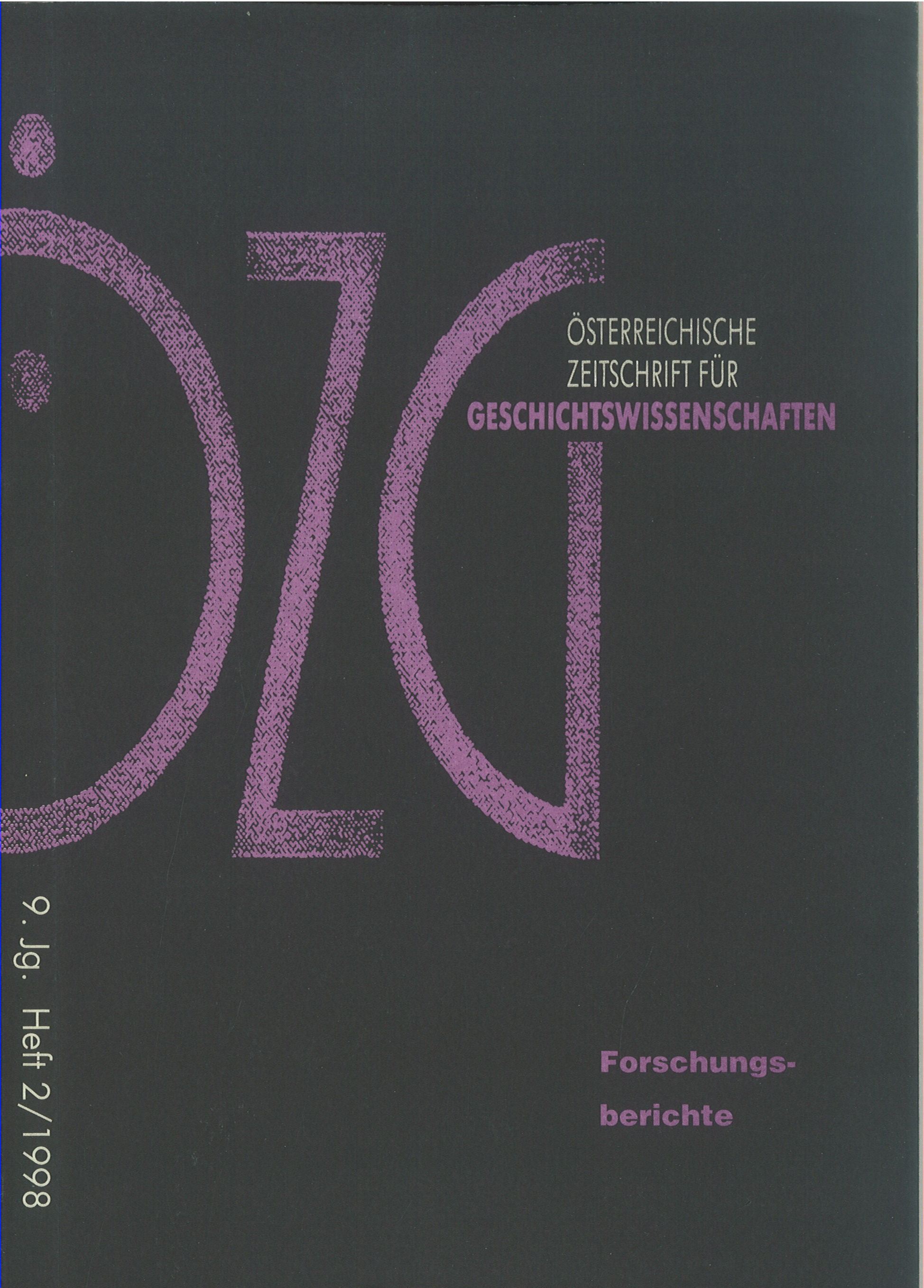Sprechen und Handeln im Breslauer Antisemitismus des Kaiserreichs
DOI:
https://doi.org/10.25365/oezg-1998-9-2-4Abstract
Current approaches to the social history of antisemitism differ from the socioeconomic emphasis fashionable in the 1970s and early 1980s in abandoning the often sterile search for the economic causes of antisemitism, acknowledging instead that antisemitic activities are to a great extent products independent of socioeconomic conditions. A close reading of the local political history of Breslau in Imperial Germany provides an illustration of the complex and multi-layered process that produces antisemitism. The paper is divided into four parts: first, the author briefly outlines the political history of Breslau, the second largest city in Prussia; second, he analyzes how antisemites successfully translated into practice their demand for the suspension of Jewish immigration; third, the author discusses the unsuccessful campaign by Breslau antisemites to exclude Jewish teachers form state schools; and fourth, it is argued that antisemites remained marginalised in local politics because of their failure to articulate their demands in accordance with the specific rhetorical rules of 'apolitical' local politics.


